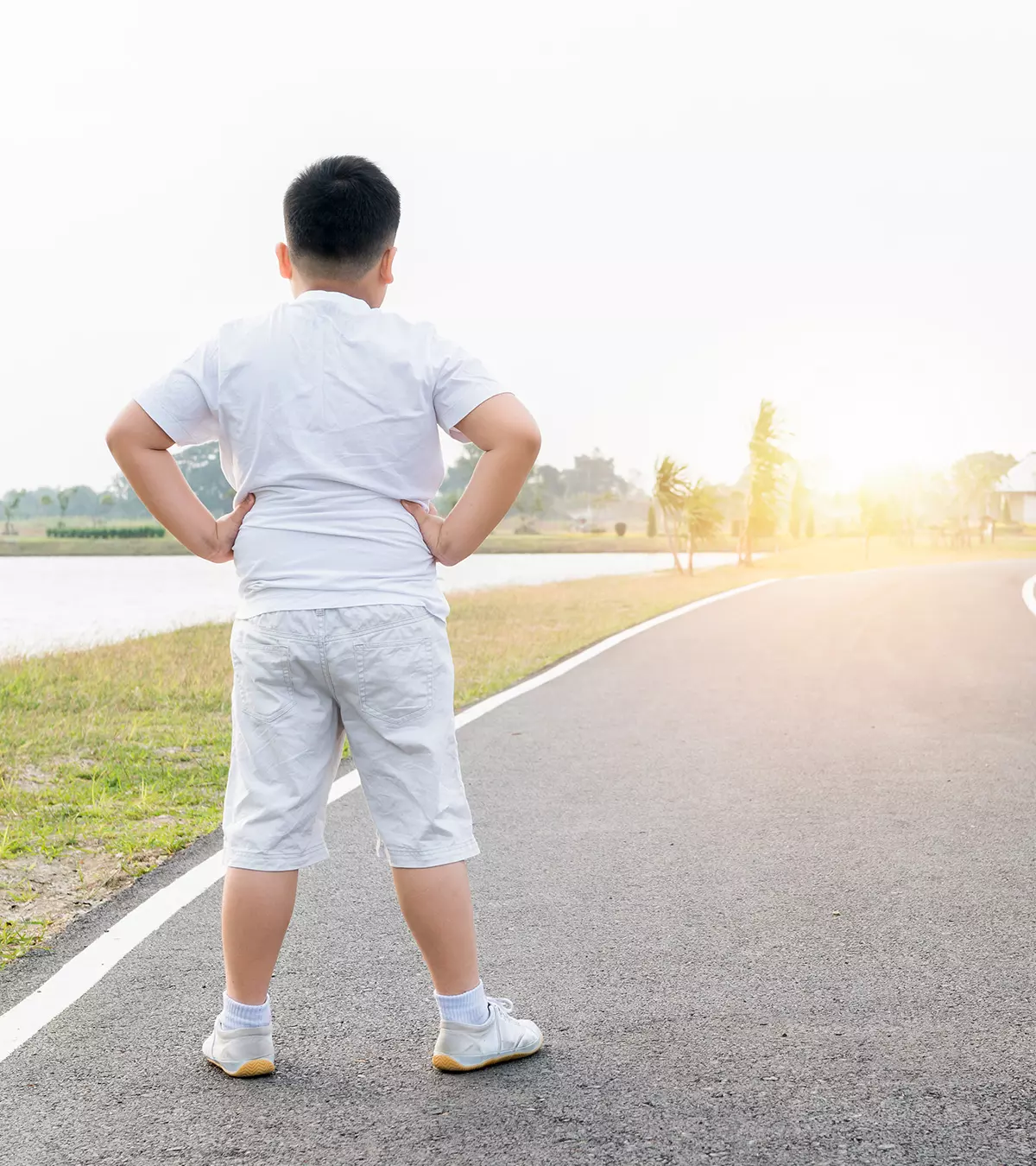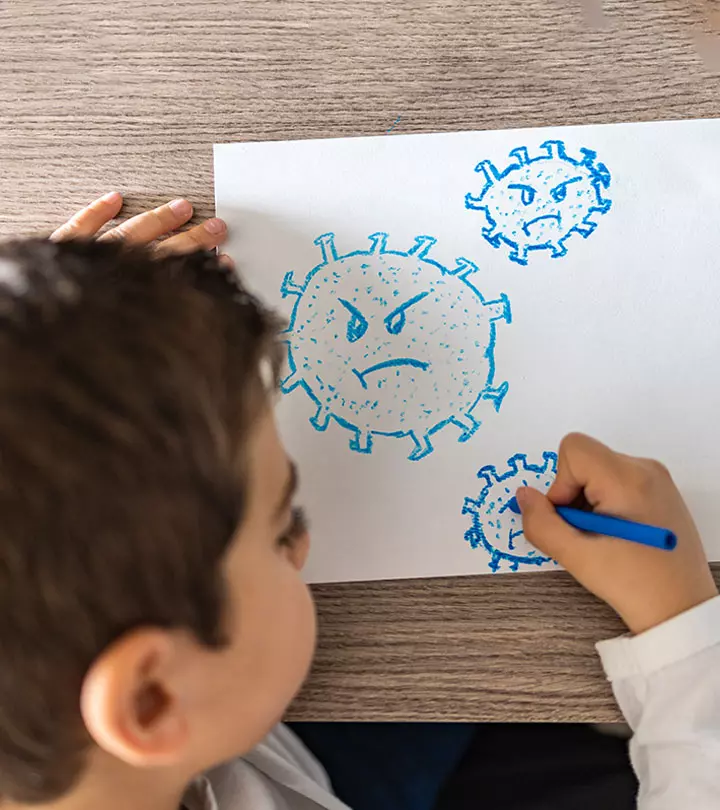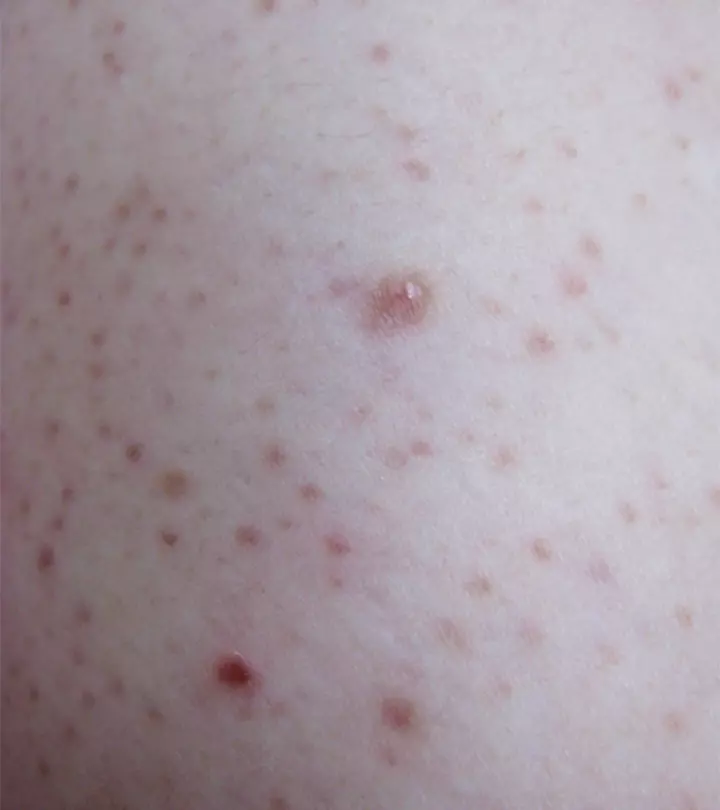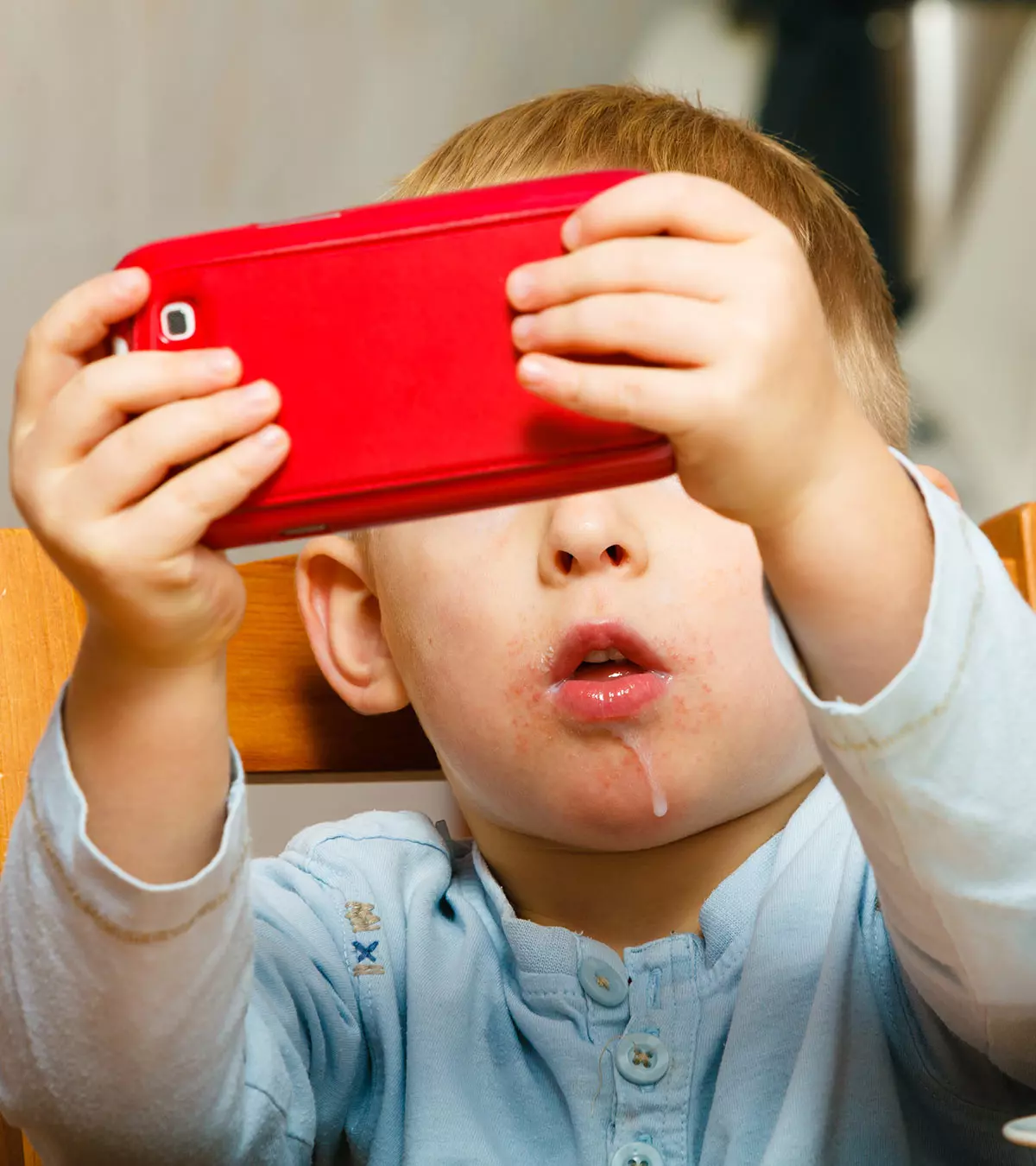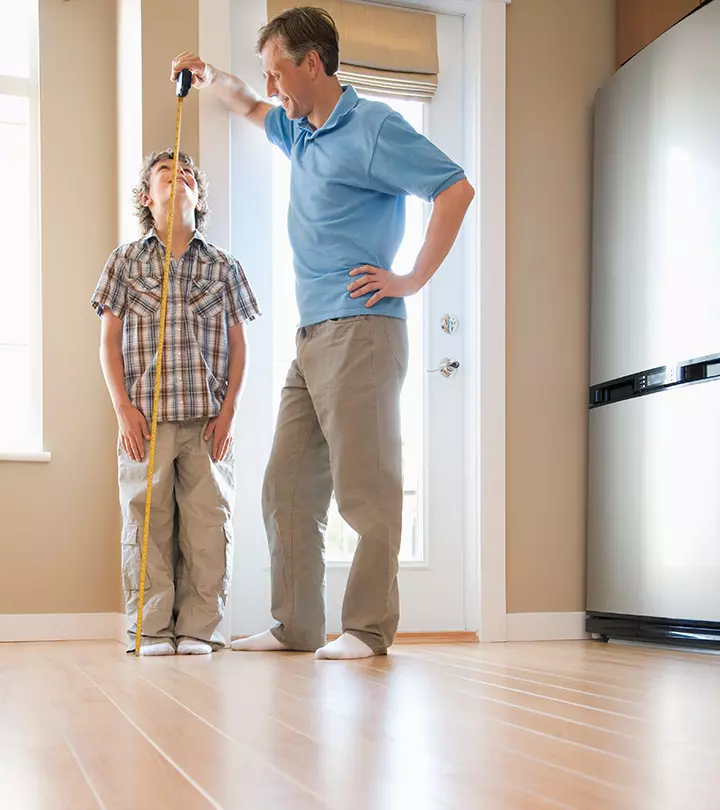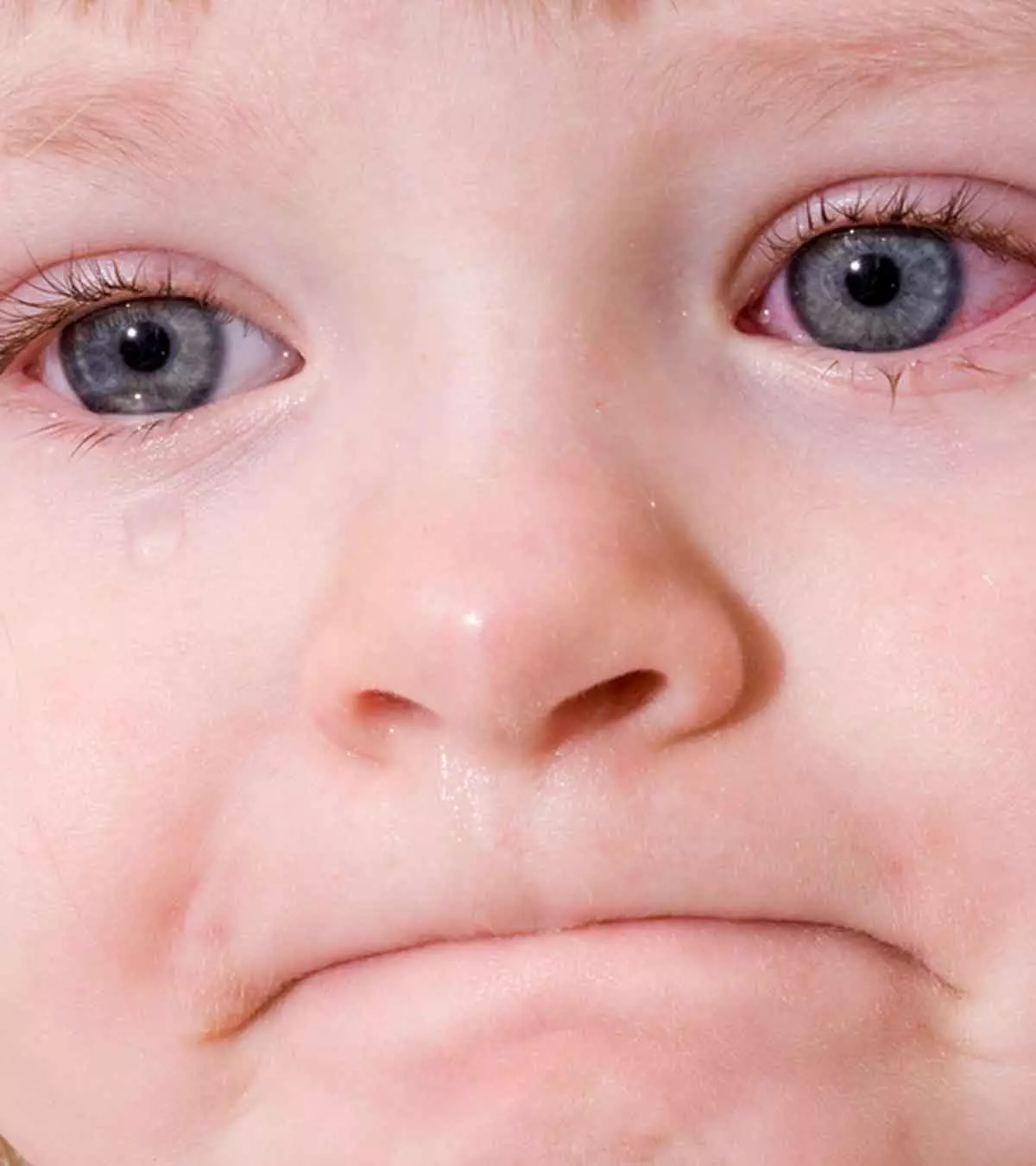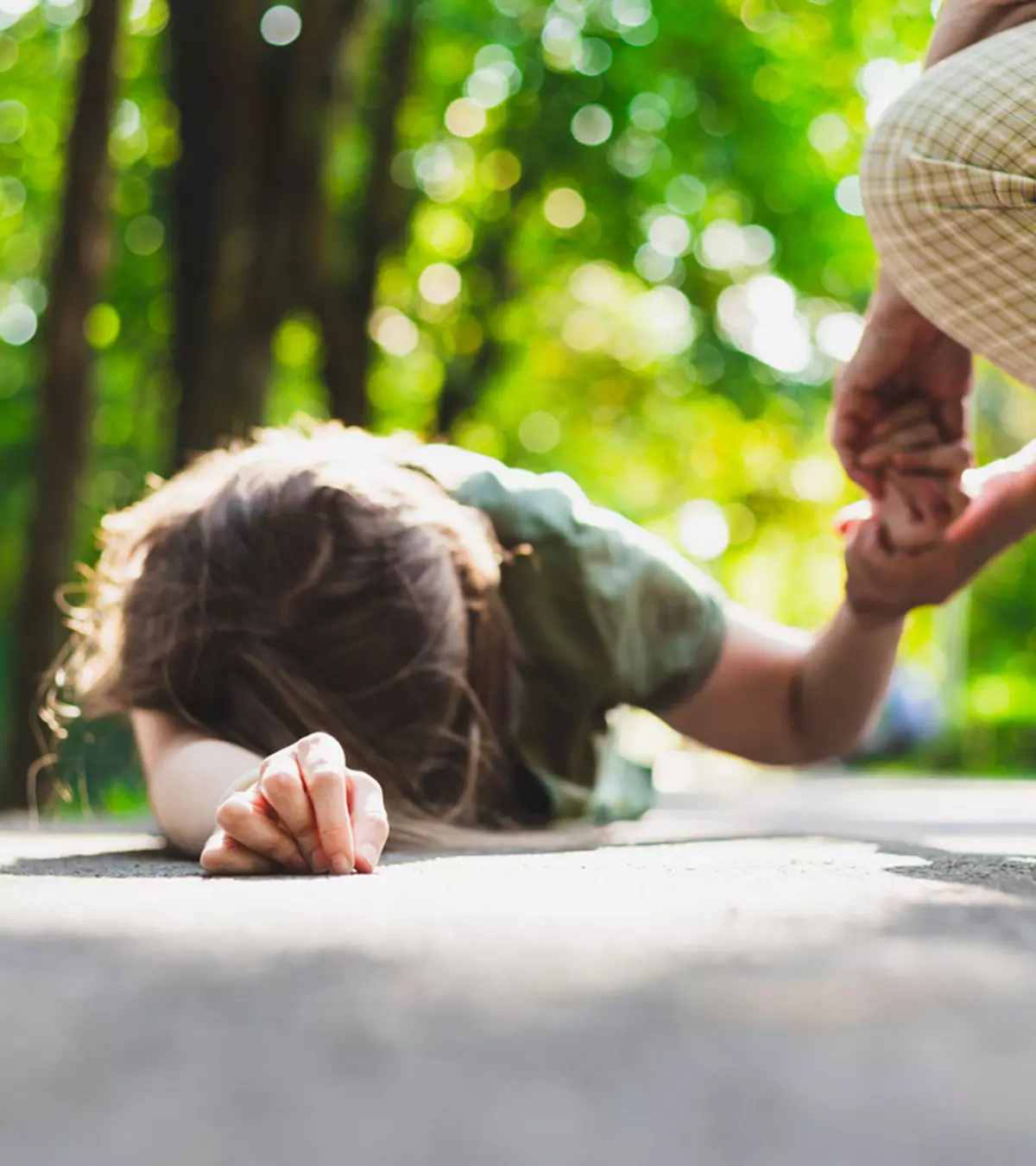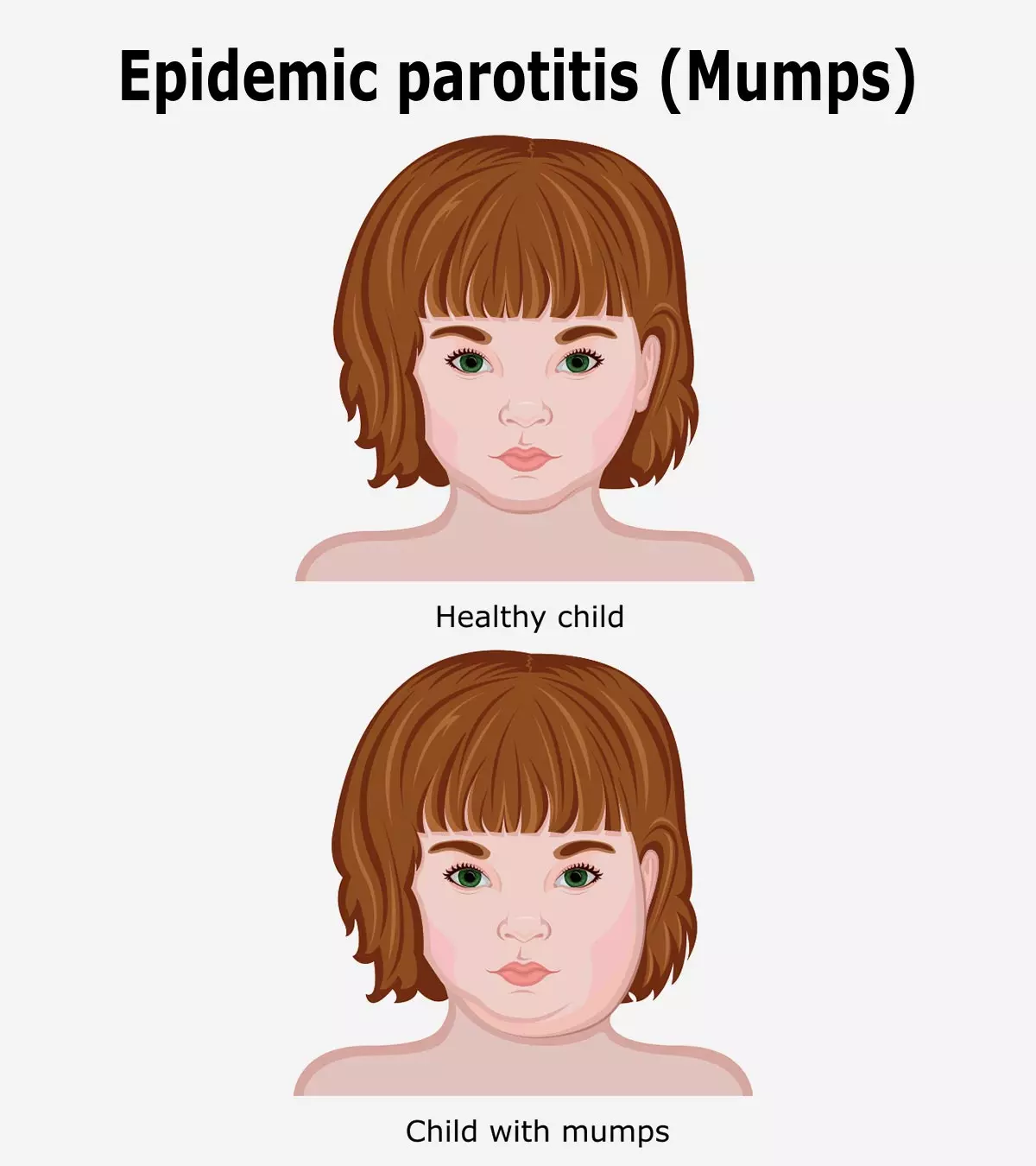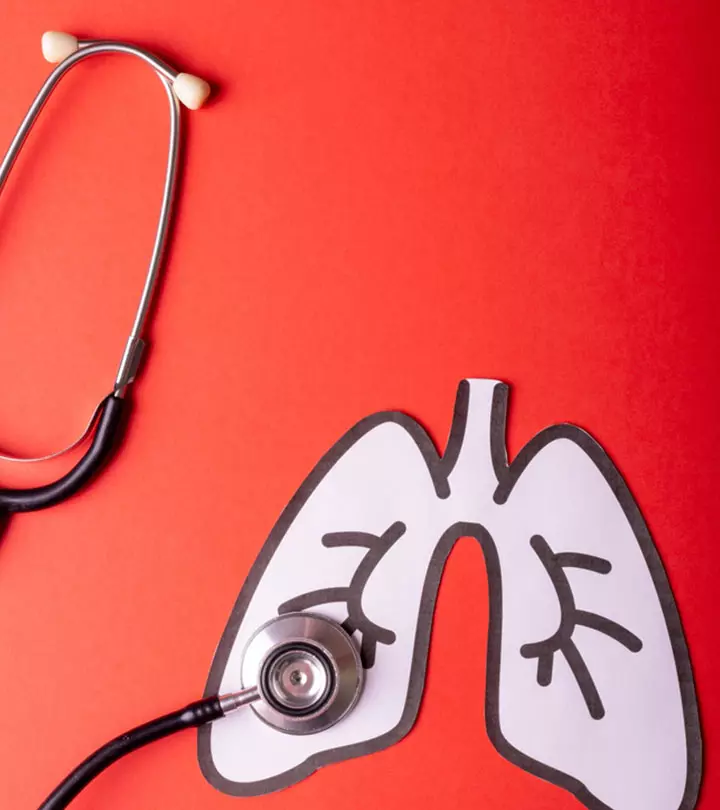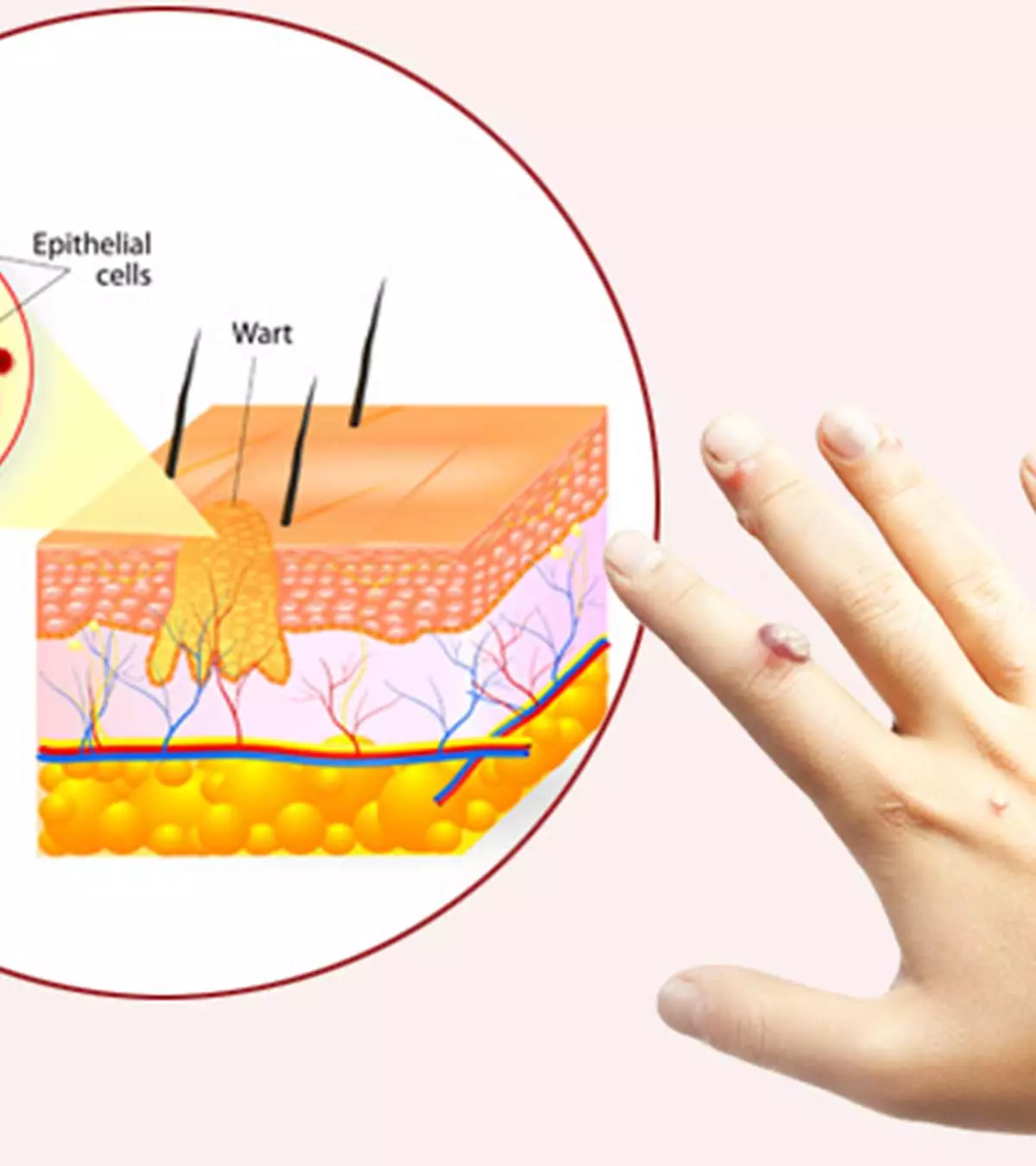
Image: Shutterstock
Puberty in girls is a period that prepares them and their bodies for the transition from childhood to adulthood.
It’s an important milestone that reflects they are growing and developing well. But since several physical, physiological, and emotional changes happen simultaneously during this period, it is common for young girls to feel confused and anxious.
As a parent, you can support your little girl and ease her anxiety by informing her beforehand about puberty and the changes it brings. It will help her know that puberty is a normal developmental phase that every girl undergoes. Besides, it will help her be prepared for these changes.
Read on as offer some insight into the different stages of puberty in girls and some tips to talk about puberty with your little girl.
Key Pointers
- Girls typically attain puberty between the ages of 14 to 16 years, during which the hormonal secretions prepare and mature the body for sexual reproduction.
- Signs of puberty in girls include breast development, menstruation, increased height and weight, body odor, fat deposition around the belly and hips, and mood swings.
- Early puberty or delayed puberty may indicate an underlying condition, and medical advice should be sought.
- Having an early, friendly conversation with girls about puberty can help them face this phase more effectively.
What Is Puberty?
Puberty is the biological phase that marks the transformation of the body from the juvenile to the adult stage. It is a time when the body matures and develops the characteristics required for sexual reproduction. The brain releases a series of hormones that trigger the transformation of the body during puberty. The effect of these hormones varies from boys to girls.
When Do Girls Attain Puberty?
Puberty in girls usually commences after eight years and continues till the age of 13 (1). The stages of puberty and the corresponding changes often continue to occur while the girl steps into the mid-teenage years. In most cases, puberty in girls is complete between the ages of 14 and 16 years.
 Things to know
Things to knowWhat Causes Puberty In Girls?
Puberty starts when a part of the brain called hypothalamus releases a hormone called gonadotropin-releasing hormone (GnRH). This hormone travels within the brain to the pituitary glandiSmall gland at the base of the brain that produces vital hormones necessary for body growth, reproduction, and metabolism. . GnRH signals the pituitary to release two hormones namely luteinizing hormoneiA reproductive hormone secreted by the pituitary gland, crucial for male and female sexual development. (LH) and follicle-stimulating hormoneiA hormone that stimulates the production of ovarian follicles (help release eggs) in females and sperm in males. (FSH).
These hormones travel through the bloodstream and reach the ovaries. LH and FSH stimulate the ovaries out of dormancy and prompt them to release the female reproductive hormone called estrogen. Estrogen travels through the bloodstream to trigger the various changes in the body associated with puberty in girls (2).
The ovaries continue production of estrogen, marking the beginning of the female reproductive stage. The changes that they go through during puberty are pretty evident, both to the children and the parents.
What Are The Signs Of Puberty In Girls?
The following are the signs that your girl has attained puberty (3) (4):
- The most significant sign is the onset of her menstruation cycles.
- Development of breasts, as the breast tissue that lies dormant within the chest, starts to increase in size gradually.
- A rounded belly and hip area due to increased fat deposit around these regions.
- A rapid increase in height and weight due to teenage growth spurt that causes bone growth. Weight increase corresponds to the increase in bone size and fat distribution to the specific body parts.
- Voice changes start to occur. The girl’s voice deepens and is similar to that of a woman.
- Change in body odor, attributed to the production of hormones by the adrenal gland. Puberty alters the gland and promotes the production of additional hormones that affect body odor. Adrenarche is a natural developmental stage during childhood when adrenal glands begin producing androgens responsible for development of underarm hair and body odor.
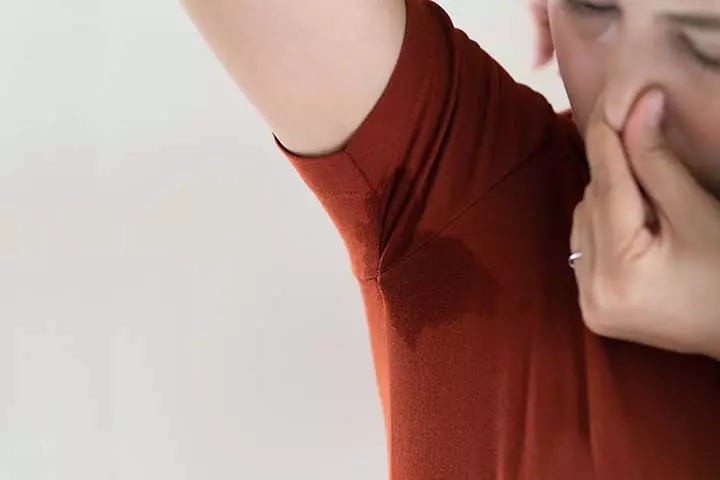
Image: IStock
- Increased sweating as the sweat glands become more active than usual. It causes the girl to sweat noticeably more than before.
- Reproductive hormones stimulate sebaceous glands (oil glands) to produce more sebum (oil) than usual, which can lead to acne.
- Change in sleep patterns as hormones reset the sleep and wake cycle of the brain. You may notice your girl staying awake for longer even when not exposed to TV or mobile phones.
- Changes in mood and behavior. There is a complete overhaul of the neuron connections of the brain. Hormones stimulate the brain to rewire itself. It can cause behavioral attributes like mood swings and impaired judgment, and can cause several cognitive changes.
- Appearance of hair in the pubic and axillary area.
These are some of the signs of puberty that you are likely to notice in your girl. A lot happens inside the body during puberty, and the changes occur gradually, in different stages.
What Are The Stages Of Puberty In Girls?
The pubertal hormones affect each part of the body differently. Here are how the girl’s body changes in each stage (5) (6) (7).:
Stage 1 – Breast development:
- The first stage of puberty is thelarche, or breast development and growth. Breasts develop even before menarche, the commencement of the menstruation cycle.
- Breast development begins when the fat begins to deposit around the nipples to form rudimentary breasts called breast buds.
Stage 2 – Development of pubic hair:
- The appearance of pubic hair is called pubarche. About 10-15% of girls will develop pubic hair before the formation of breasts.
- Initially, pubic hair growth is soft and straight. But through the years of puberty, pubic hair can get coarse and curly, darker and denser.
- Pubic hair emerges around the labia, which are the folds of the skin around the vagina. The hair slowly starts spreading to the lower abdomen. The hair will cover more skin around the genitals over the years. By the end of puberty, the pubic hair will have the distinct inverted triangle cover.
- The hair on the legs and arms usually emerges around the same time when the first pubic hair comes out. It is common for girls to spot some fine stray hair around the nipple.
- Four years after the early signs of puberty, the pubic hair will spread to inner thighs.
Stage 3 – Physical development:

Image: Shutterstock
- Fat starts to deposit around various parts of the body, especially the hips. The hips get wider than the waist.
- Other places for fat deposit are the thighs, upper back, and the upper arms.
- There is an increase in weight and a rapid increase in height. Girls may grow taller by as much as two to three inches per year through the course of puberty.
 Quick fact
Quick factStage 4 – Genital development:
- The genitals grow in shape and size. The vulva, which is the outer part of the vagina, becomes darker. Vulva development during puberty also causes the labia minora (inner lips of the vulva) to grow and thicken.
- About a few months before their first period, girls may experience a secretion of a thick, whitish-yellow fluid called leukorrhea from their vagina. This vaginal discharge comes from the glands within the vaginal wall, before the first period, is called physiologic leukorrhea (8). The fluid is the body’s defense mechanism against germs and also helps restore the chemical balance within the vagina.
- The genitals are fully developed by four years after the start of puberty.
Stage 5 – Menarche
- Menarche marks the beginning of the menstruation cycle. A girl gets her first period about three to four years after the early signs of puberty start to show. The average age of menarche is 12 years (9).
- The first periods are usually light but can be heavy and are often irregular – in some cases with a gap of months between two periods. It is normal and nothing to worry about as it takes time for the menstrual cycle to establish a pattern.
There are seldom any problems during puberty, but sometimes there could be red flags.
When To Be Concerned About Puberty In Girls?
Puberty is mostly a smooth process. However, there could be instances when the phase does not go as expected. Below are some situations of concern:
- Puberty before the age of eight (with exceptions): It is called precocious puberty (10). The exact cause of precocious puberty is not known, although medication, neurological diseases, lifestyle, and environmental factors are believed to play a role.
Girls of different racial backgrounds attain puberty at different ages. African-American girls can show the first signs of puberty by the age of seven. In any case, if you feel something is not right about your girl’s body and she seems to display signs of puberty early, a doctor’s visit is not a bad idea.
- Periods before the age of eight: The menstrual cycle does not begin before the age of eight years in girls, regardless of race and ethnicity. If you notice vaginal bleeding and discharge before eight years, then take the girl to the doctor even if she is otherwise healthy and not in pain.
- No sign of puberty till the age of 14: If there is no breast enlargement by the age of 14, consult a doctor.
Late or impaired puberty in girls may occur due to problems with the pituitary gland. Issues with the ovary or ovarian function are often due to faulty genes. For example, the genetic disorder called Turner syndrome can inhibit puberty due to problems with the ovary (11).
How To Talk To Girls About Puberty?
It is essential to speak to your daughter about puberty and periods since their experience with it is nascent, making it highly confusing and troubling. Laura Fox, a writer specializing in parenting and mental health, recounts her first period and the lack of understanding she faced. She recalls, “My first period was excruciating. I had no idea what was happening to me. I thought my insides were being twisted. I lay on the floor in pain and looked up to see my mum’s disapproving face. “It’s just a period,” she sighed in exasperation. Like her and her mother before her, I was plagued with painful periods from that day on. And like her and her mother before her, I reasoned that this was how it was supposed to be. It was just my period (i).”
This approach might lead your daughter to seek information from external sources. Here are some tips that can help you talk to your daughter on the topic.
- Start on time: Consider talking about puberty with your daughter by the time she is eight or nine years old and displays the first signs of puberty. Delaying the talk may make the child look for answers elsewhere while talking too early may leave her confused and overwhelmed.

Image: IStock
- Speak in bits instead of all in one go: Do not put all the information you want to share in one long conversation. Instead, share different points at different stages of your daughter’s puberty. Her body is getting ready to be a woman. You can use examples from your own experience while talking to her.
If you sense your daughter is mature enough to understand things or has questions about it, then it is okay to share information about the matter whenever she is ready.
- Use references to begin communication: Did you see an ad for a sanitary napkin on the TV? Use it as a point of reference to initiate discussion about puberty with your daughter. If she has a science chapter about human biology, it could be an excellent starting point too. Using everyday situations and ideas is the best way to make the girl relate and understand puberty better.
- You need not be ambiguous: If you are explaining about the genitals, then use correct names like the vagina or vaginal opening to refer to them. Using vague words may confuse the girl while also making her feel anxious or embarrassed about puberty. Using the correct vocabulary to address parts of the female reproductive system is essential to make your daughter feel at ease.
- Explain the biology: A biological explanation of the changes that she experiences can be a good idea. Tell your daughter that the ovary releases the egg while the uterus mounts layers of blood-rich tissue in anticipation of the fertilized egg. But when the egg does not fertilize, the uterus sheds the tissue and associated blood vessels through the vagina, which is what causes menstruation.
The release of an egg by the ovary is cyclic and so is menstruation, which is why it is called menstrual cycle or a period. The cycle usually occurs once in 28 days.
The talk on puberty is going to be two-sided. Your daughter will have questions of her own.
 Quick tip
Quick tipQuestions Girls Ask About Puberty
Puberty is an important phase that could be scary for a little girl. They may ask you questions to understand it better. Here are eleven such questions about puberty that a girl is likely to ask (12).
1. Do periods hurt?
The first few periods are painless and you may not feel anything. However, as the ovary establishes a cycle, one may experience cramps and soreness around the lower belly. Some other effects include bloating, sore breasts, headache, lower backache, and moodiness.
Assure your daughter that the physical impact of periods become tolerable and manageable as one gets older. If menstrual pain is excruciating, then take your daughter to the doctor who can recommend exercises and also prescribe over-the-counter medication to ease the pain.
2. How much blood will she lose during periods?
The body loses around 3-5 tablespoons of blood during a period, but not all at once. It is a steady trickle of blood across three to seven days depending on how long the period lasts.
3. Should she wear sanitary pads or tampons?

Image: Shutterstock
Medical experts recommend starting with sanitary pads till the menstruation regularizes. The flow of blood during menarche is erratic and some periods could be heavy while others light. Once the period and flow get established, your daughter can choose sanitary pads or tampons. Menstrual cups can require skill to insert and can be slightly tedious to remove.
Sanitary pads and tampons are better options for the pubescent girl. You can let your daughter try both of them before deciding what works best for her.
4. If she wears tampons, can it get lost within the vagina?
No. It is impossible for a tampon to get lost within the vagina (13). Tampons come with a string that stays outside the vagina and allows the user to pull it out. Even if a tampon string gets into the vagina, you can easily feel and find it. Also, the opening to the cervix at the end of the vagina is too small for the tampon to pass any further.
5. Can she participate in activities during menstruation?
Yes, of course! There is no need for a girl to cut down on sports or other similar activities just because she is menstruating. Your daughter can even go swimming while she is on periods (14). You will need to pick the appropriate tool for menstrual management.
For instance, tampons are better alternatives when indulging in sports and especially swimming since sanitary pads are external and will absorb water. Overall menstruation is not a reason to cease physical activity.
6. What if she experiences periods suddenly or has an accident?
Your daughter can pack a couple of sanitary pads or tampons within her backpack when she goes to school. The initial bleeding will be light and not enough to spread to external clothes. There will be adequate time to put the tampon/sanitary pad in the bathroom. However, accidents may happen.
It is a good idea to let your daughter carry an extra pair of panties and pants/skirt till her menstrual flow is established. She can also use other general steps such as avoiding light-colored clothes when menstruating. In either case, there is no reason to panic. Once the period cycle is set and regular, your daughter will be better prepared to handle and minimize the chances of an accident.
7. Should she shave body hair?
Girls may choose to shave depending on what they believe is the best for them. If they choose to shave, then teach them proper hygiene such as cleaning the razor after use and not sharing it with anyone, including siblings.
A girl may pick alternative techniques to combat body hair growth, such as a hair-removing cream. If your daughter does not wish to shave, then it is okay too. There is no medical reason to shave, and shaving body hair is a very personal choice.
8. Should she wear an undergarment?
Your daughter can wear a training brassiere specially made for pubescent and adolescent girls. Some girls can be conscious of their newly-developed breasts, while others may not overthink. It is up to your daughter if she wishes to wear the undergarment or not. Getting your daughter a training brassiere is an excellent way to prep her as she grows into adulthood.
9. Why does she feel sudden changes in mood?
Reproductive hormones such as estrogen and progesterone play an important role in brain development during puberty. They can change a girl’s feelings about people, places, and incidents around her. Make your daughter realize that behavioral change is normal, especially right before her periods begin. Also, tell her that mood swings do not make her a bad person.
If she is bothered about it, she can focus on things that help uplift her mood. In any case, let your little girl know that the effects on the mood are temporary. She will slowly learn to handle it better to the point that her periods will have a negligible impact on her mood.
10. She is gaining weight, is it normal?
Yes, there is nothing wrong with it. Most teen girls are exposed to the “ideal” female body image either through media or toys. It can clash with their self-image and self-esteem during puberty and make them feel unattractive. Tell your daughter that there is no perfect figure type and as long she has healthy body weight there is no need to worry about the extra fat she is putting on. The body fat continues to distribute throughout puberty. Her body will eventually get proportionate and less rounded. However, she needs to be physically active with one hour of physical activity every day to avoid unhealthy weight gain.
11. Will she have a sudden fascination for lovemaking and intimacy?

Image: Shutterstock
Puberty is the time when girls may be keen to know about intimacy. There is also an increased attraction toward the opposite gender. It is essential that, as a parent, you discuss the topic of lovemaking and give relevant sexual health education to your daughter. Here are some points to share with her (15):
- It is normal to be attracted to boys and to befriend them. There is nothing wrong with spending time with someone of the opposite gender. But healthy limits are necessary.
- There will be moments when a girl may find herself in a situation that could lead to a sexual encounter. Teach your daughter to handle the situation by politely saying “No” to her male friend. Tell her to avoid activities such as the consumption of alcohol and narcotic drugs that make her vulnerable.
- Tell her about the possible complications and implications of adolescent or teenage pregnancy. Teenage moms are less likely to complete their education and there are health risks for both the mother and child. Also, there can be several complications during delivery, since a teenage girl’s body is still developing.
- There may be other forms of powerful encounters that may not be like “real” intercourse but are equally dangerous. For instance, oral intercourse can lead to contact with semen that can lead to the spread of STDsi. There is a right time for everything in life. For now, abstinence is the best thing for your daughter to stay safe.
- Be clear with your daughter when explaining about the attributes of lovemaking so that she knows what not to do. She may not understand connotations, so a vivid explanation works better.
- You need not scare your daughter away from boys! But teach her to set boundaries. Tell her that one need not be intimate to prove love and there are other ways of spending quality time with a male friend.
Frequently Asked Questions
1. What are the emotional changes during puberty in girls?
Girls may experience a range of emotional changes during puberty. They may feel irritable at one point and sad at another. It can lead to a lack of confidence, often resolved by puberty’s end. Nevertheless, during their menstrual cycle, hormonal changes can cause PMS (premenstrual syndrome), which can bring about symptoms such as anxiety, irritability, sleeplessness, and sadness (18).
2. What can parents do to help their daughters through puberty?
To help their children through puberty, parents should stay up-to-date on information, give comfort, lead by example with healthy habits and body acceptance, and honor their child’s need for privacy (19).
3. How can girls best cope with the stress of puberty?
Girls especially benefit from learning about the physical changes they will go through during this time, which helps them better manage the experience (20).
4. What psychological changes occur during puberty in girls?
An individual undergoes crucial psychological and social changes during puberty and early adolescence. These include engaging in abstract thinking, understanding others’ perspectives, and self-reflection. The establishment of personal and gender identity, formation of a value system, growing independence from family, the prioritization of peer relationships, and the emergence of refined problem-solving skills and coping strategies are some more psychological changes girls experience during puberty (21).
5. How long does puberty last in girls?
The onset of puberty in females typically occurs from 9 to 14 years old and spans a duration of approximately two to five years (22).
The onset of puberty is when both boys and girls undergo various physical changes in their bodies. Puberty in girls mostly brings about changes in their secondary reproductive organs and also an increase in height and weight. While some girls might adjust to these changes in an acceptable manner, others might face difficulty and also face social anxiety due to the same. Thus, you must talk to your daughter about these changes. Help her understand how they are a normal part of reproduction and nothing to be too conscious about.
Infographic: Signs Of Puberty In Girls
Puberty brings numerous physical, psychological, and physiological changes that might make your teen anxious and perplexed. So, read through this infographic to learn the typical symptoms of puberty in girls, and explain them to your teen daughter to help her understand the nuances of this phase. Illustration: Momjunction Design Team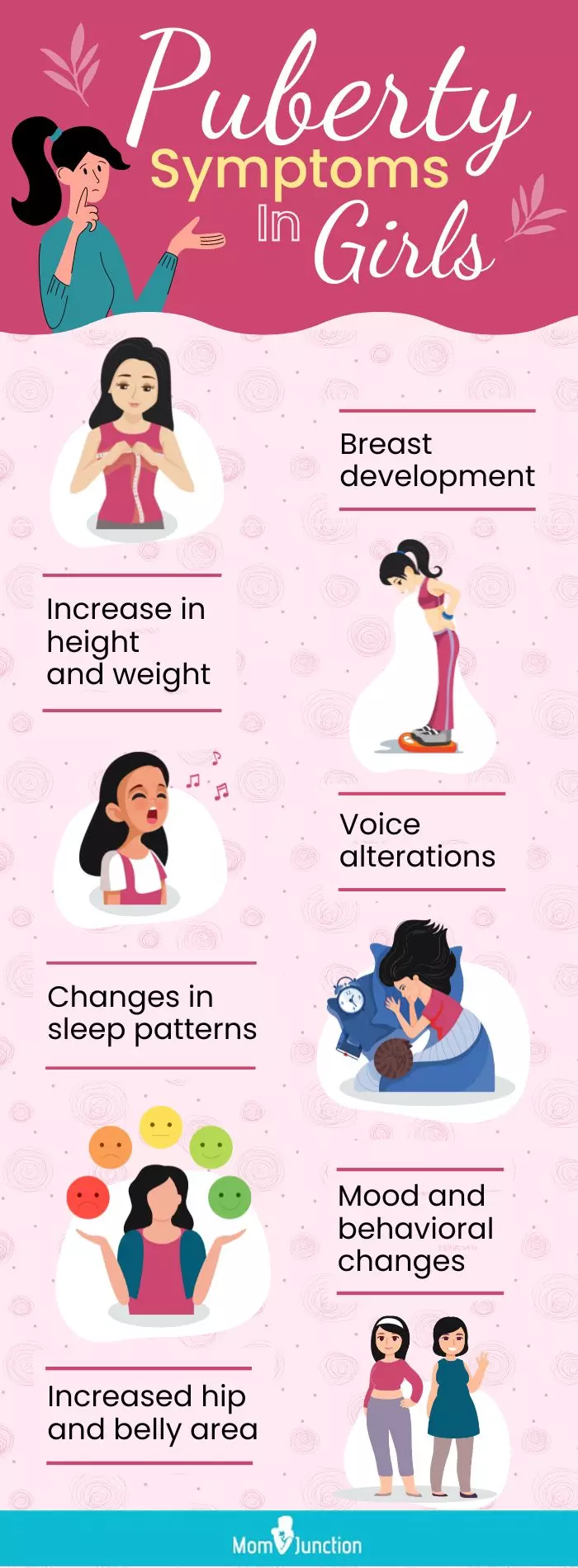
Illustration: Puberty In Girls: Causes Signs Stages And Duration
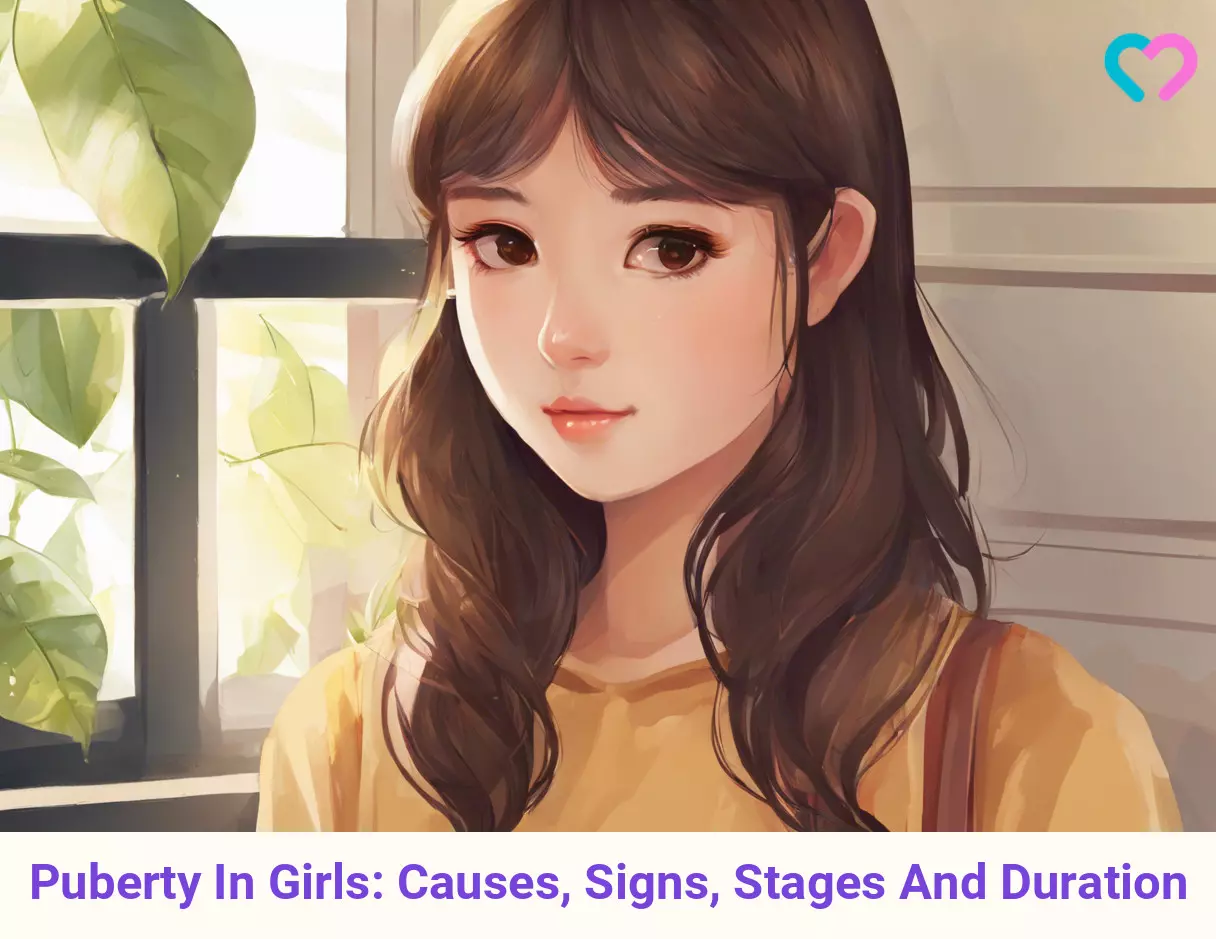
Image: Stable Diffusion/MomJunction Design Team
Are you feeling confused about puberty? Don’t worry, you’re not alone! This video will help you understand what’s normal and what’s not.
Personal Experience: Source
MomJunction articles include first-hand experiences to provide you with better insights through real-life narratives. Here are the sources of personal accounts referenced in this article.
i. “It’s just your period.” — How the invalidation of periods silences women.https://ashyfox.medium.com/its-just-your-period-how-the-invalidation-of-periods-silences-women-505f9a8cc52
References
1. Physical Development in Girls: What to Expect During Puberty American Academy of Pediatrics
2. Understanding puberty; Nemours Foundation
3. Puberty: Teen Girl; UC San Diego Health
4. All about puberty; Nemours Foundation
5. What Every Parent Needs To Know About Puberty In Girls; University of Utah
6. Stages of puberty: what happens to boys and girls; NHS UK
7. Physical Development in Girls: What to Expect; American Academy of Pediatrics
8. How to Talk to Your Adolescent Girl About her Body; Cleveland Clinic
9. Starting your periods; NHS UK
10. Precocious Puberty (Early Puberty); Stanford Medicine Children’s Health
11. Delayed Puberty in Girls: A Guide for Families; American Academy of Pediatrics
12. Girls and puberty Q&A; NHS UK
13. Can a tampon get lost inside me?; NHS UK
14. 5 Myths About Swimming During Your Period; Penn Medicine
15. Why waiting to have sex makes sense; U.S. Department of Health and Human Services
16. Puberty in Girls; MSD Manuals
17. Girls and Puberty; American Academy of Family Physicians.
18. Girls and Puberty; familydoctor.org
19. Parenting children through puberty and adolescence; Better Health Channel
20. Puberty for girls – physical and emotional changes; healthdirect
21. Psychosocial milestones in normal puberty and adolescence; NCBI
22. Puberty: Normal Growth and Development in Girls; Saint Luke’s Health System
Community Experiences
Join the conversation and become a part of our nurturing community! Share your stories, experiences, and insights to connect with fellow parents.
Read full bio of Dr. Anuradha Bansal
Read full bio of Swati Patwal
Read full bio of Rohit Garoo
Read full bio of Dr. Joyani Das








